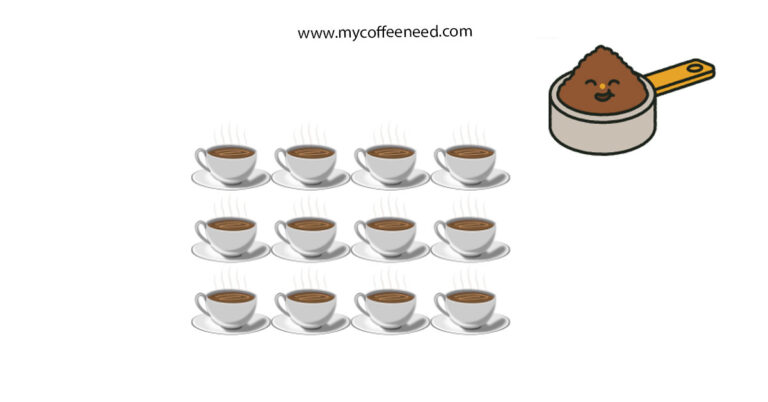How Can Coffee Make You Sleepy?
Our daily routines for many of us, coffee is the trusty companion that helps us power through our busy schedules.
The rich aroma, the comforting warmth, and the revitalizing caffeine jolt – it’s what we rely on to stay awake and alert, right? But have you ever found yourself asking, How can coffee make you sleepy? It’s a curious paradox, but the answer lies in the intricate relationship between coffee, your body, and sleep.
In this in-depth exploration, we’ll delve into the science behind this phenomenon and uncover the surprising ways that your favorite brew can leave you feeling drowsy. So, brew a fresh cup, settle in, and let’s unlock the secrets of how coffee and sleep intertwine.
Can Coffee Improve Your Sleep?
Coffee is renowned for its ability to keep us awake and alert, but can it actually contribute to better sleep? It may seem counterintuitive, given that caffeine, the primary active compound in coffee, is a well-known stimulant.
However, when used strategically, coffee can potentially play a positive role in improving your sleep quality. Here’s how:
1. Timing Is Key
The timing of your coffee consumption can make a significant difference in its impact on sleep. When consumed earlier in the day, coffee can help enhance alertness and productivity, but it’s essential to avoid it in the hours leading up to bedtime.
Caffeine has a half-life of several hours, which means even that late afternoon cup can affect your ability to fall asleep and the overall quality of your rest.
2. Moderation Matters
The amount of coffee you consume is another crucial factor. It’s essential to strike a balance. While excessive caffeine intake can disrupt sleep, moderate consumption might not have the same negative effects.
Staying within the recommended daily caffeine intake of around 400 milligrams (equivalent to about four 8-ounce cups of brewed coffee) is generally considered safe and may not interfere with your sleep.
3. Enhancing Sleep Patterns
Interestingly, some studies suggest that moderate coffee consumption could enhance sleep patterns in certain individuals.
Coffee contains bioactive compounds, such as chlorogenic acid, which may have positive effects on glucose metabolism and overall health.
When consumed in moderation, these compounds might promote better sleep regulation, particularly in those with irregular sleep patterns.
4. Individual Variations
It’s important to recognize that the relationship between coffee and sleep can vary from person to person. Some individuals are more sensitive to caffeine’s stimulating effects, while others may be more tolerant.
Paying attention to your body’s responses and adjusting your coffee intake accordingly is a key aspect of improving sleep with coffee.
5. Experiment and Observe
The best way to determine how coffee affects your sleep is through personal experimentation. Keep a journal of your coffee intake and sleep quality.
Note the time of day you consume coffee, the amount, and how it influences your sleep patterns. Over time, you’ll be able to tailor your coffee consumption to optimize your sleep.
The relationship between coffee and sleep is nuanced. While excessive or ill-timed coffee consumption can disrupt sleep, moderate and strategic use of coffee may not necessarily be detrimental to your sleep quality.
Understanding your body’s unique responses to caffeine and fine-tuning your coffee habits can potentially lead to better sleep, despite the common perception that coffee is solely a wakefulness enhancer.
How Can Coffee Make You Sleepy?
The connection between coffee and sleep may seem contradictory at first glance. Coffee, with its caffeine punch, is more often associated with waking up and staying alert.
However, it’s essential to explore the science behind how coffee can, in some cases, lead to drowsiness. Here’s how this intriguing phenomenon occurs:
1. The Afternoon Slump
In the afternoon, many people experience what’s commonly known as the “afternoon slump.” It’s that time of day when energy levels dip, and concentration wanes.
This is a natural part of our circadian rhythm. To combat this slump, many individuals turn to a cup of coffee. While it can provide a temporary energy boost, it’s crucial to remember that caffeine’s effects are not long-lasting.
As the caffeine’s stimulating effects wear off, the abrupt drop in energy can lead to feelings of fatigue, making you feel sleepier than before you had that coffee.
2. Sleep-Wake Regulation
Caffeine has a direct influence on the body’s sleep-wake cycle. It works by blocking adenosine receptors, a neurotransmitter that promotes sleep and relaxation.
This blockade of adenosine leads to increased alertness and wakefulness. However, the flip side of this mechanism is that it can interfere with your body’s natural ability to prepare for sleep.
In other words, if you consume coffee too close to bedtime, the lingering effects of caffeine may make it difficult to wind down and fall asleep.
3. Disrupted Sleep Patterns
Consistent consumption of caffeine, especially in the latter part of the day, can disrupt your sleep patterns. It can lead to difficulty falling asleep, frequent awakenings during the night, and a decrease in the overall quality of your sleep.
Even if you do manage to fall asleep, the restorative aspects of your slumber may be compromised by the presence of caffeine in your system.
4. Individual Sensitivity
It’s important to note that individual sensitivity to caffeine varies. Some people can consume coffee in the evening and sleep without any apparent disruption, while others may be highly sensitive to even small doses of caffeine.
Genetic and lifestyle factors can contribute to these differences. It’s crucial to understand your own tolerance and experiment with your coffee intake to find what works best for your sleep.
5. Hydration and Coffee
Dehydration can also play a role in feeling drowsy after consuming coffee. Caffeine is a diuretic, which means it can lead to increased urination and potential fluid loss. Dehydration can make you feel tired and lethargic, which can be mistakenly attributed to coffee itself.
In summary, while coffee is a popular tool for staying awake and alert, it’s important to recognize that its effects can vary from person to person and depend on timing and quantity.
Understanding the dynamics of coffee’s interaction with your body’s natural sleep-wake cycle is key to managing its potential to make you sleepy when you don’t want it to.
Conclusion
In our journey to understand the intriguing relationship between coffee and sleep, we’ve uncovered the paradoxical ways in which coffee can make you feel sleepy, despite its reputation as a wakefulness enhancer. Here are the key takeaways:
The Afternoon Slump:
The afternoon slump is a common phenomenon, and it’s a time when people often reach for a cup of coffee to combat fatigue. However, the temporary jolt of energy can be followed by a dip, leaving you feeling sleepier than before.
Sleep-Wake Regulation:
Caffeine’s mechanism of action involves blocking adenosine receptors, leading to increased alertness. Nevertheless, this can interfere with your body’s natural sleep-wake cycle, making it challenging to prepare for restful sleep if you consume coffee too close to bedtime.
Disrupted Sleep Patterns:
Consistent caffeine consumption, especially in the later part of the day, can disrupt sleep patterns, causing difficulties in falling asleep, nighttime awakenings, and a reduction in sleep quality.
Individual Sensitivity:
Caffeine sensitivity varies from person to person, influenced by genetic and lifestyle factors. It’s essential to understand your own tolerance and adjust your coffee consumption accordingly to avoid sleep disruptions.
Hydration and Coffee:
Dehydration resulting from caffeine’s diuretic effect can contribute to feelings of drowsiness. Staying hydrated is crucial to counteract this effect and maintain your energy levels.
In closing, the interaction between coffee and sleep is far from one-size-fits-all. While coffee can certainly be a valuable tool for enhancing alertness and productivity, it’s equally vital to respect its potential to affect your sleep.
By being mindful of the timing, quantity, and your own sensitivity, you can strike a balance that allows you to enjoy your favorite brew without compromising your rest.
So, whether you’re a coffee enthusiast or simply someone curious about the intricacies of this beloved beverage, you now have the knowledge to make informed choices that ensure your coffee serves you well in both wakefulness and slumber.







